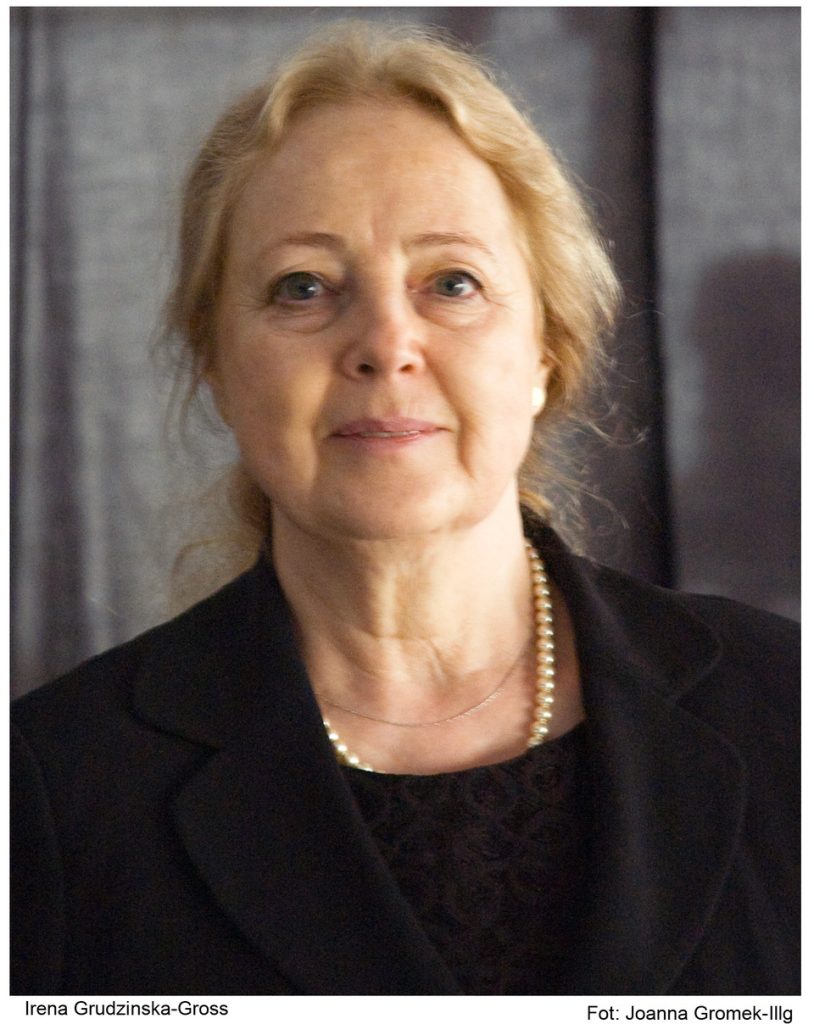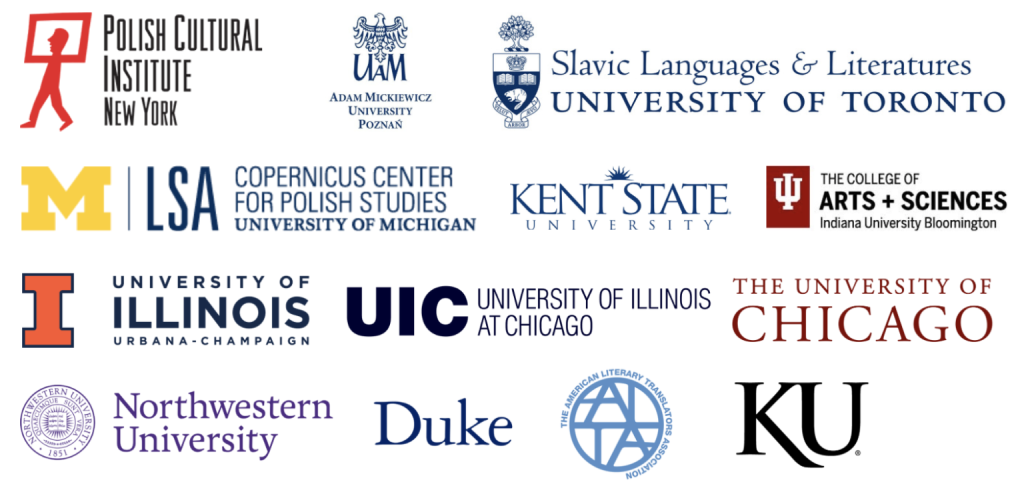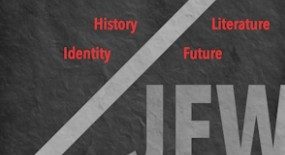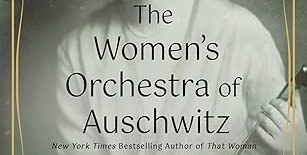Episode 21 and all video recordings are available at:
Polish Cultural Institute New York YouTube
Encounters with Polish Literature is a video series for anyone interested in literature and the culture of books and reading. Each month, host David A. Goldfarb will present a new topic in conversation with an expert on that author or book or movement in Polish literature. More about the Encounters with Polish Literature series and the timeline.
Milosz has the indomitable strength of the committed writer, urgently pouring out, for the past seventy years, works too numerous, and too complex, to be grasped in their entirety by any single reader’s mind. – Helen Vendler, New York Review of Books
He is among those members of humankind who have had the ambiguous privilege of knowing and standing far more reality than the rest of us. – Seamus Heaney
Czeslaw Milosz, poet, essayist, translator, and literary historian, won the 1980 Nobel Prize in Literature, as a writer “who with uncompromising clear-sightedness voices man’s exposed condition in a world of severe conflicts”. His work has been accurately characterized as “one of the monumental splendors of poetry in our age” (Edward Hirsch, The New York Times Book Review)
Milosz was born of Polish parents in the multi-ethnic world of Lithuania in 1911, and was raised and educated in Vilnius. Counting himself among the last of the Polish Lithuanians, he recalls, “We were something else, Lithuanians, but not in the accepted twentieth-century sense, which says that to be a Lithuanian you have to speak Lithuanian.” While studying for his law degree as early as 1930 he already began to garner recognition for his poems. In 1931 he and a group of university associates formed the literary circle, “Żagary,” or “Brushweed,” advancing a vision that critics called “catastrophist.” He traveled between Wilno and Paris in the early 1930s, meeting frequently with his relative, Oskar Milosz, also a poet of metaphysical concerns, returning in 1935. He was working for Polish Radio in Warsaw when the Germans invaded, then wrote and edited resistance publications, including an underground poetry anthology that proliferated in risky defiance of the occupation.
After the war Milosz entered the diplomatic service, first as cultural attaché in New York and Washington, and then in Paris, where, following the suppression of Poland’s coalition government in 1951, he requested asylum. In Paris he was vilified by most French intellectuals (who saw Communism and Stalin as the hope of the future) for breaking with the Communist regime, and was regarded coolly by many earlier Polish émigrés for having served it. In part to keep his sanity he wrote The Captive Mind (1953), his brilliant study of the “mental acrobatics” of Polish writers who chose to conform to Stalinist dogmas. During his ten years in Paris Milosz won acclaim throughout Europe for translated editions of his poetry, novels, and essays, which were banned in Poland. In 1960 Milosz accepted a position as a visiting lecturer at the University of California at Berkeley, and became a full professor there in 1961, and for the next twenty years combined his writing with teaching courses on subjects ranging from Dostoevsky to Manicheanism. Yet in Cold-War America The Captive Mind remained his only well-known work until 1973, when a volume of Milosz’s poetry was published in English for the first time, finally sparking his renown in the English-speaking world as a poet and not just a political essayist.
As a Nobel Laureate Milosz returned to Poland in the summer of 1981 for the first time in 30 years—to a country spiritually liberated by the Solidarity movement—and he was welcomed as a national hero. Publication of his banned books resumed, but was again forbidden with the imposition of martial law that December. Until 1989 he mainly published in the Paris émigré journal Kultura and in the Polish underground press. After 1989 he lived in Berkeley and in Krakow.
Czeslaw Milosz died on August 14th 2004 and is buried in the crypt at the Church of St. Michael the Archangel and St. Stanislaw on the Rock (Na Skalce) in Krakow.
In this episode we look particularly at Miłosz’s experience of World War II and its impact on his later poetry and writing. We consider some of his poems about the extermination of the Jews in the Holocaust, his experience of war as a civilian like Białoszewski and like many victims of the current war in Ukraine. We also look briefly at his relationship to the Russian dissident poet Joseph Brodsky and his reaction to Brodsky’s now-infamous anti-Ukrainian poem.
Selected works by Czesław Miłosz in English:
To Begin Where I Am. Ed. Bogdana Carpenter and Madeline G. Levine. New York: FSG, 2002.
Beginning with My Streets: Essays and Recollections. Tr. Madeline G. Levine. New York: FSG, 2010.
The Captive Mind. Tr. Jane Zielonko. New York: Vintage International, 1990.
Emperor of the Earth Modes of Eccentric Vision. Berkeley, Ca.: University of California Press, 1981.
Facing The River. Tr. Czesław Miłosz and Robert Hass. New York: Ecco, 1996.
The History of Polish Literature, updated edition. Berkeley, Ca.: University of California Press, 1983.
The Issa Valley. Tr. Louis Iribarne. New York: FSG, 2000.
The Land of Ulro. Tr. Louis Iribarne. New York: FSG, 2000.
Legends of Modernity: Essays and Letters from Occupied Poland, 1942-1943. Tr. Madeline G. Levine. Intro. by Jarosław Anders. New York: FSG, 2006.
Milosz’s ABC’s. Tr. Madeline G. Levine. New York: FSG, 2002.
The Mountains of Parnassus. Tr. Stanley Bill. New Haven, Conn.: Yale University Press, 2017.
Native Realm: A Search for Self-Definition. Tr. Catherine S. Leach. New York: FSG, 2002.
New and Collected Poems, 1931-2001. Tr. Czesław Miłosz with Robert Hass and others. New York: Ecco, 2017.
Postwar Polish Poetry (anthology), New Expanded Edition. Berkeley, Ca.: University of California Press, 1983.
Road-side Dog. Tr. Czesław Miłosz and Robert Hass. New York: FSG, 1999.
Second Space, New Poems. Tr. Czesław Miłosz and Robert Hass. New York: Ecco, 2005.
Selected and Last Poems, 1931-2004. Tr. Czesław Miłosz with Robert Hass and others. Intro. by Seamus Heaney. New York: Ecco, 2011.
Visions from San Francisco Bay. Tr. Richard Lourie. New York: FSG, 1983.
The Year of the Hunter. Tr. Madeline G. Levine. New York: FSG, 1995.
Recommended:
Fiut, Aleksander. The Eternal Moment. Tr. Theodosia S. Robertson. Berkeley, Ca.: University of California Press, 2022.
Fiut, Alexsander and Czarnecka, Ewa (pseud. Renata Gorczyńska). Conversations With Czesław Miłosz. Tr. Richard Lourie. New York: HBJ, 1987.
Franaszek, Andrzej. Ed. and tr. Aleksandra Parker and Michael Parker. Miłosz: A Biography. Cambridge, Ma.: Harvard University Press, 2017.
Grudzińska-Gross, Irena. Czeslaw Milosz and Joseph Brodsky: Fellowship of Poets. New Haven, Conn.: Yale University Press, 2009.
Grudzińska-Gross, Irena. Miłosz i długi cień wojny (Miłosz and the Long Shadow of War, in Polish). Meridian. Sejny: Fundacja Pogranicze, 2020.
Haven, Cynthia. Czesław Miłosz: A California Life. Berkeley, Ca.: Heyday, 2021.

Irena Grudzinska Gross emigrated from her native Poland after student unrest of 1968. She studied in Poland, Italy and in the United States; she received her PhD from Columbia University in 1982. She taught East-Central European history and literature at Emory, New York, Boston and Princeton universities. She is now a professor in the Institute of Slavic Studies at the Polish Academy of Science and a 2018 Guggenheim Fellow. Her books include Miłosz and the Long Shadow of War (Pogranicze, 2020), Golden Harvest with Jan T. Gross (Oxford University Press, 2012), Czesław Miłosz and Joseph Brodsky: Fellowship of Poets (Yale University Press, 2009), and The Scar of Revolution: Tocqueville, Custine and the Romantic Imagination (University of California Press, 1995). She has edited books on literature and the transformation process in Central and Eastern Europe and has published numerous book chapters and articles on these subjects in the international press and periodicals. Between 1998-2003, she was responsible for the East-Central European Program at the Ford Foundation.
Bartek Remisko, Executive Producer
David A. Goldfarb, Host & Producer
Natalia Iyudin, Producer




